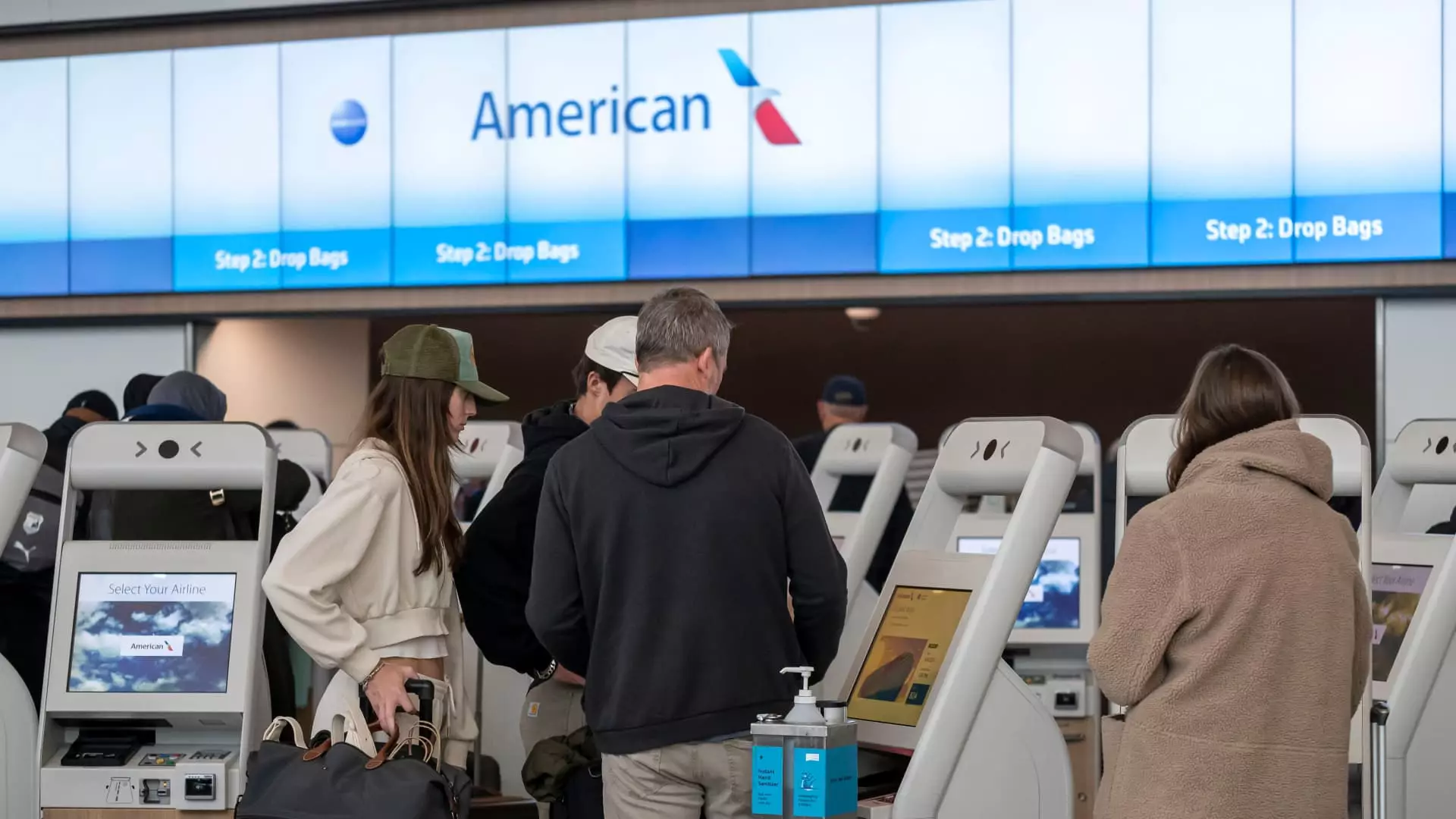The stock market is notoriously volatile, influenced continuously by a variety of internal and external factors, including economic data, investor sentiment, and news involving major companies. In this midday trading analysis, we will explore the performance of several companies making headlines and the implications of their stock movements.
In a deeply unsettling event, shares of American Airlines experienced a decline of 2.5% after a regional jet was involved in a tragic collision with an Army helicopter in Washington, D.C. This incident marks a grim milestone, being the first fatal commercial airline crash on U.S. soil since 2009. The repercussions of this event are likely to reverberate throughout the airline industry, as safety concerns are paramount. Investors may begin to reassess their confidence in airline stocks, particularly if further investigations reveal broader safety management issues.
Nvidia, a dominant player in the semiconductor industry, saw its shares drop significantly, taking a plunge of over 3%. With a cumulative loss exceeding 16% for the week, the tech giant appears to be under considerable selling pressure. Market analysts suggest that Nvidia’s stock downturn may signal a correction in the tech sector, driven by fears of slower growth in key markets. Investors are closely monitoring the company’s performance, anticipating how it will respond to market demands and competitive threats moving forward.
United Parcel Service (UPS) was among the biggest losers of the day, plummeting by 16%, driven primarily by its recent agreement with Amazon to cut shipping volumes by more than 50% by 2026. This announcement raises significant concerns, as Amazon is the shipping firm’s largest customer. Such a drastic reduction in volume not only threatens UPS’s revenue stream but also indicates a potential turning point in e-commerce logistics dynamics. Investors must tread carefully as UPS contends with the fallout from this decision, which could drastically alter the landscape of the shipping industry.
On a brighter note, Las Vegas Sands enjoyed a commendable stock increase of over 10%, buoyed by better-than-expected revenue results for the fourth quarter. Reporting revenues of $2.9 billion against analyst forecasts of $2.87 billion has reinvigorated investor confidence in this casino and resort operator. The resurgence in tourism and consumer spending post-pandemic may be contributing positively to earnings, prompting discussions regarding broader economic recovery trends in travel and hospitality.
ServiceNow, a major player in enterprise software, faced disappointment as its shares dipped more than 12% due to bleak revenue guidance for the first quarter. With a forecast falling short of expectations at $2.995 billion to $3 billion, analysts expressed concern. This serves as a reminder that even stalwarts in the tech industry can face downturns, particularly in a time of economic uncertainty where investment in IT solutions may not be as robust as anticipated.
In contrast, International Business Machines (IBM) showcased resilience with a 12% stock increase, bolstered by promising fourth-quarter results. The company reported earnings of $3.92 per share, surpassing stock analyst expectations. This performance can largely be attributed to IBM’s ability to adapt and innovate in a rapidly changing technology landscape, highlighting the importance of strategic pivots and operational efficiency in maintaining investor confidence.
Caterpillar and Teradyne: Mixed Outcomes
Caterpillar, although securing a profitable earnings per share figure of $5.14, still demonstrated a stock decline of 4.8% due to missed revenue expectations. Similarly, Teradyne’s stock fell by 6.5% in spite of mixed guidance. These cases underscore the need for companies to not only meet but exceed revenue forecasts to maintain positive stock performance in today’s investment environment.
Comcast’s shares fell 12% following a reported loss of 139,000 residential broadband subscribers, raising alarms about customer retention in the highly competitive telecommunications landscape. Similarly, Cigna’s stock dropped 8% after posting mixed fourth-quarter results, reflecting ongoing challenges in the healthcare sector as firms strive to balance cost management with patient needs.
Today’s trading highlights a market that is both resilient and fragile, exhibiting sharp contrasts between companies thriving and those struggling under pressure. As investors evaluate these movements, it becomes clear that the performance of individual stocks can be influenced dramatically by both company-specific news and broader economic trends. Understanding these dynamics is essential for navigating the complex world of stock trading.

